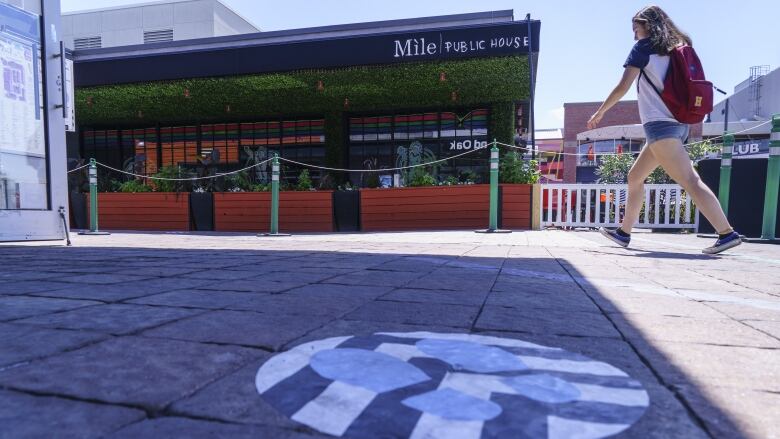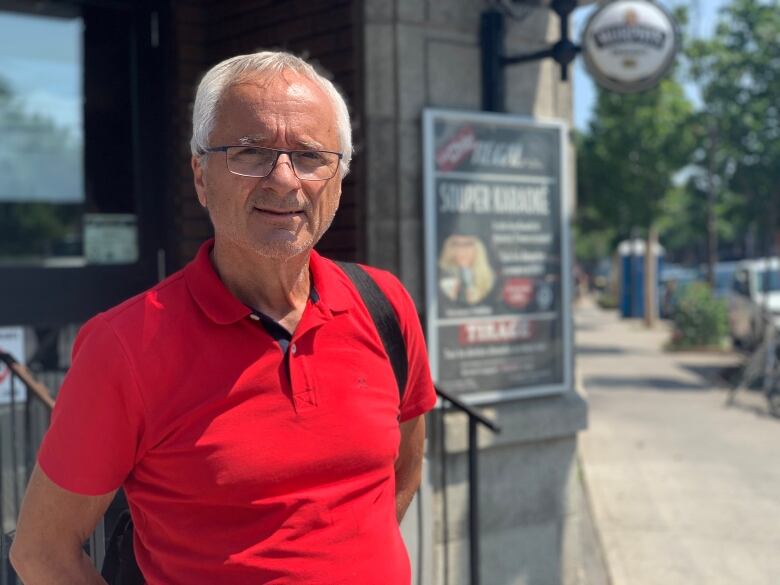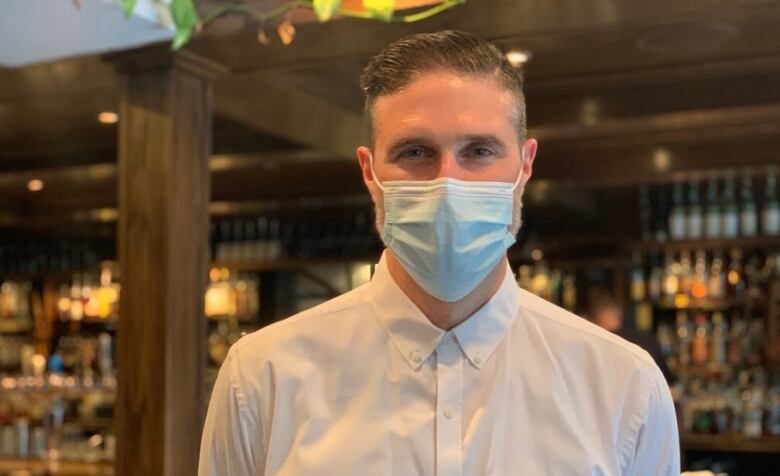Quebec to crack down on bars with 1 a.m. closing time, reduced capacity
New rules come into effect Friday, after infections linked to Brossard bar

Starting Friday, bars in Quebec will have to close by 1 a.m., operate at no more than half capacity and ensure clients are seated while they're drinking, following a flare-up of COVID-19 infections linked to a bar and two house partiesonMontreal's South Shore.
Speaking at a news conference Thursday afternoon, Health Minister ChristianDub said last call for alcoholic beverages will be midnight instead of 3 a.m., and bars must be cleared of customers an hour later.
Customers must remain seated at tables and no dancing is allowed.
The new regulations will also include an increased police presence around bars and surrounding streets, to make sure clients and ownersare respecting the guidelines.

Dub said clients will be asked if they are willing to sign a registry upon entering a bar, in order to make contact tracing easier in case of an outbreak.
"That registry, which would only be for the public health team, would allow us to conclude those investigations much more quickly," Dub said. "Speed is our greatest friend when limiting the spread of the virus."
Dr. Horacio Arruda, the province's director of public health, said any information submitted will remain confidential, and is a way to protect people from the virus.
"Most of the people will accept this," Arruda said.
He said any owners who don't respect the rules will face consequences that already exist, such as being fined or having their permit withdrawn.
"Those who think the pandemic is over are making a very serious error," Dub said, adding that failing to follow the health measures is selfish.
"By letting down our guard, we are putting the health and lives of people at risk."
Measures a compromise: health minister
Jean-Jacques Beauchamp, president of theCorporation des propritaires de bars,brasseries,tavernes du Qubec, was infuriated when he heard of the measures the government is implementing.
"The government of Quebec has no concern about us at all," Beauchamp said."Maybe the government should consider helping us a little bit."
He feels bars are being singled out in Quebec, all because of a few confirmed cases at Mile Public Housein the DIX30 shopping centre.
"Why us? Why the bars?" Beauchamp asked.
"It happened at one place in Brossard, and everybody will pay the price now. So this makes us very angry."
Dub said he knows many bar owners might be unhappy with the new regulations, but he said the alternative is shutting down bars completely.
Paul Desbaillets, co-owner of Montreal's Pub Burgundy Lion and a member of the Nouvelle Association des Bars du Qubec, says he understands why the new rules are needed.

"Isit going to hurt business? Of course, it's going to hurt business, andyou can't sugarcoat this," Desbailletssaid.
"Butblaming the incident that happened at DIX30, that's not the reason for all of this. The reason for all of this is because they want to keep everybody safe."
Desbaillets said most bars had already reduced their capacity in order to make it possible for clients to stay two metres apartfrom one another.
And while bars want to keep their employees on staff and make money, he said they also don't want to endanger anyone while doing so.
Bars, large parties are high-risk:epidemiologist
Dr. DavidBuckeridge, an epidemiologist at McGill University, says a more gradual reopening ofthe food and drink sector would have been a better approach, as well as in-depth consultation between public health officials and bar owners and associations, to make sure the regulations work in practice.
"Ifyou can't [ensure] controls are workable in practice, then I think it's time you start looking at alternatives," Buckeridge said.
He said bars are just one of manyvery high-risk environments because people generally gather closetogether for a long period of time. He said thisincreases the risk of infection.
"If there's loud music and you're having to raise your voice, you're putting out more droplets which may contain viral particles," Buckeridge said.
But he said bars and nightclubs, are no riskier than a large house party.
"We've just got to think about ways to socialize without increasing the risk andleading tolarge increases in the number of people affected," Buckeridge said, pointing to the recent increase in COVID-19 cases in the United States.
With files from Radio-Canada and Kate McKenna













_(720p).jpg)


 OFFICIAL HD MUSIC VIDEO.jpg)
.jpg)



























































































